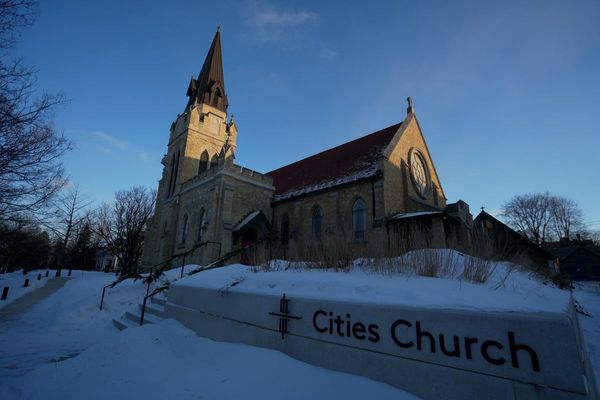
Doug Demore is no “revenge” traveler. The broadcast engineer never stopped traveling during the pandemic for his job, installing and maintaining televisions transmitters across the U.S. West. Since the pandemic, though, he says service has gotten so bad he’s had to change hotels in the middle of a trip. On his last trip, Demore had a seven-day booking, but left after day two.
His main complaint? Housekeeping—or lack thereof. “Not as many towels, maid service essentially stopped during the visits, floors [aren’t] really cleaned very well, some beds looked like someone took a nap on them before I got there,” Demore, 53, told Fortune.
So far, operators that scaled down on staff during the pandemic-era labor shortage are in no hurry to staff back up, according to industry analysts. In fact, hotel staffing during the pandemic saw its biggest plunge in three decades, according to figures compiled by Unite Here, and it has yet to come back.
Hotels that scaled back room cleaning “found that, more often than not, most customers didn’t miss it, and additionally, with lack of labor and labor prices going up, hotel owners are perfectly fine with not having to pay up for housekeeping,” said C. Patrick Scholes, managing director of leisure and lodging equity research at Truist Securities.
“I think the customer is the loser here — room rates are fully back and more, but you're getting less service,” he said.
View this interactive chart on Fortune.com
Same price, less effort
Cleaning-optional stays didn’t start with the pandemic—over the last decade, hotels began pitching guests the choice to skip a towel refresh or a cleaning for perks, usually points or a small snack item.
But the pandemic supercharged that trend. With properties mostly empty and the handful of guests willing to forgive pandemic-fueled disruptions, many chains saw a chance to scale back permanently in return for higher profits.
“The work we're doing right now in every one of our brands … is about making them higher-margin businesses and creating more labor efficiencies, particularly in the areas of housekeeping, food and beverage and other areas,” Hilton CEO Chris Nasetta told investors in 2021, predicting that, “when we get out of the crisis, those businesses will be higher margin and require less labor than they did pre-COVID.” According to its latest annual report, Hilton had 8% fewer employees systemwide than it did in 2019, even as its room count jumped 14%.
A company spokesperson did not answer a Fortune query on its cost-cutting strategy, but said in a statement, “An increasing number of our hotels have also reintroduced automatic daily cleaning services as travel has rebounded following the pandemic. Beginning this fall, guests will enjoy automatic daily housekeeping at all of Hilton’s Luxury, Full Service, Lifestyle and Embassy Suites by Hilton hotels worldwide.” The person added, “ Guests at any of Hilton’s brands can share their preferences upon arrival or during their stay and tailor their housekeeping schedule to their individual needs.”
Pre-pandemic, hotels needed to keep about 40% occupancy in order to break even on costs, but with cleaning being cut back, that figure has shifted closer to 30%, Scholes said. That’s one reason he believes daily housekeeping, at least for mid-range and lower hotels, is a thing of the past. “If it hasn’t happened by now, it’s not going to happen,” he said.
Nationwide, hotel occupancy so far has rebounded to its 2019 levels, according to data provider STR, but employment hasn’t kept pace. That’s not entirely the hotels’ fault: Many workers left the industry during the pandemic, noted Sean O’Neill, hotels editor at travel industry website Skift. After the staff exodus, hotels “have now had to hire people who don’t have that experience and train them,” he said—one reason that some operators may be dragging their feet on cleaning more frequently.
It’s also true that hotels are dealing with substantially higher costs than they faced a few years ago, with interest rates today near 8%, more than double their levels in the pandemic. Against that backdrop, hotel operators building new properties are eager to save where they can—and labor costs is one area.
Today, “it’s more expensive to build a hotel or own a hotel. And you’re looking to offset costs, and this is going to be one of them,” said Scholes.
Even at the low end of worker pay, hotels can see substantial savings from reducing housekeeping. According to a rough calculation by Richard Clark, a Bernstein analyst, a 100-room property that pays workers $10 an hour can save $110,000 in labor costs by cleaning rooms every third day. (In many high-cost areas like New York or Las Vegas, hotel housekeepers earn substantially more than that, especially if they are represented by a union.)
Hotels say that they adjust cleaning schedules to what guests want. Hyatt’s policy is that while “housekeeping options vary by hotel, but guests can share their housekeeping preferences upon arrival and hotels will work to honor their requests.” Marriott, which offers a full clean for top-tier properties and an every-other-day cleaning elsewhere, instructs guests on how to opt in or out of cleaning.
Hyatt did not reply to requests for comment on cleaning frequency, while Marriott said, “In the U.S. and Canada, how often housekeeping service is provided varies by hotel segment and guests may personalize their housekeeping preferences during the booking process.”
Luxury services declining
It’s not only cleaning where staffing has fallen: Hotels have also eliminated many perks that felt luxurious but weren’t very profitable, such as room service or hotel-operated restaurants, said Scholes.
At the Fairmont Sonoma Mission Inn, massage therapist Alex Treadwell says it’s harder to do her job with less staffing but no fewer customers. The hotel has cut back on overnight cleaning and eliminated a concierge position, Treadwell told Fortune.
Clients arriving for a sauna session or massage have to direct their questions to a masseuse or room attendant in between cleaning tasks, she said.
“It’s like if you’re hosting a party, and you don’t show up as the host,” she said. Once, a guest approached Treadwell to ask for a dry robe after the masseuse had slipped on a puddle and was sitting on the floor, Treadwell said.
Now, the spa has a “brownish gray” trail down the hallway on what was once uniformly beige Spanish tile, Treadwell said. Longtime clients of hers “will use words like ‘tired’. They’ll say ‘it is going downhill,’” she said. “They come in with certain expectations… When you come in, you want the place to look pristine, you want to hear angels singing. And that's not happening.”
To add insult to injury, Treadwell said that the spa raised its prices for massages in recent years with no improvement in service—a massage that used to cost $169 is now $199. (Treadwell makes $18 per hour, as well as a portion of the massage fee.) Workers at the inn have pushed to unionize, believing that collective bargaining is the only way to get the staffing and pay they want.
“We’re unionizing so we can provide a better, safer workplace for ourselves and a better experience for the guest. It doesn’t seem like that’s going to happen unless we unionize,” said Treadwell.
“Covid pushed us into the territory where it’s undeniable that something has to change,” she added. “Maybe they’re thinking they lost money from Covid and now they have to raise prices to make up for it … But you’d think they would be doing something better, offering better services, not removing the concierge and not cleaning the floors.”
A spokesperson for the hotel did not respond to a request for comment.







